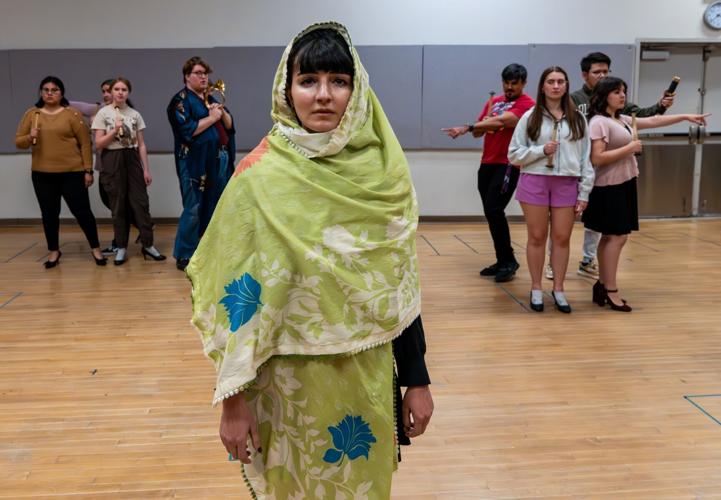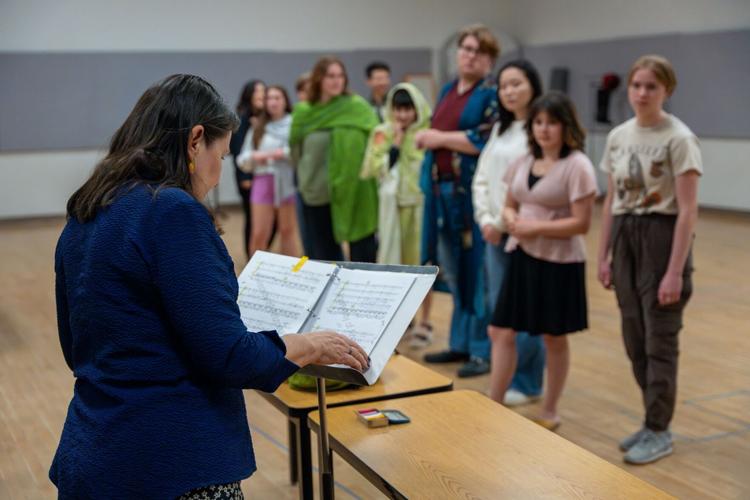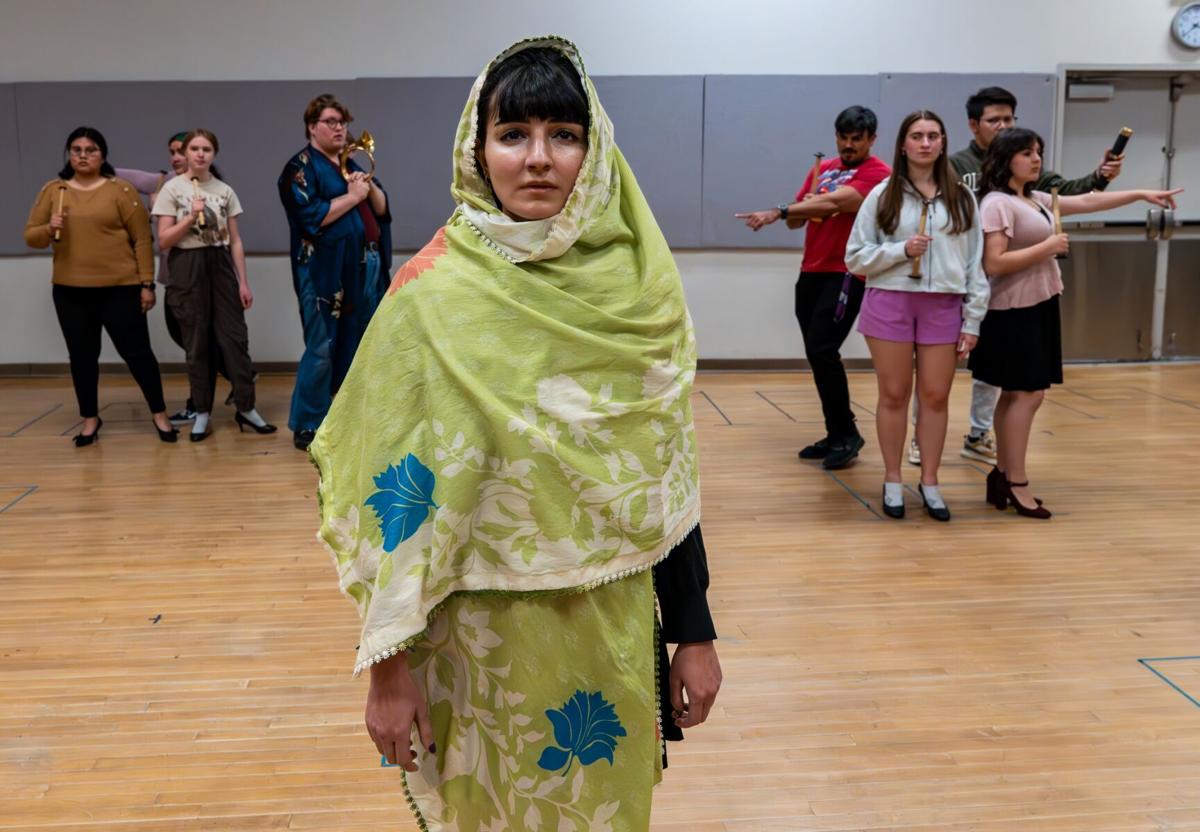The creators of the 2014 opera “Thumbprint” recently offered advice to the young cast in University of Arizona Opera Theater’s upcoming production: “Take good care of yourselves.”
They meant that in every sense of the sentiment, from good bodily care to good mental health care.
“Thumbprint,” composed by Kamala Sankaram with a libretto from Susan Yankowitz, is a heavy emotional lift, a contemporary opera with a story based on a horrific true event that seems unimaginable through the UA students’ American lens.
“The piece will creep up on you. I’ll be watching the show and all of a sudden I’m sobbing,” UA Opera Theater Director Cynthia Stokes said last week as her cast of 15 was weeks into rehearsals for the show’s opening on Wednesday, April 17. It runs at 7:30 p.m. April 17-Friday, April 19, and 3 p.m. Saturday, April 20, at Crowder Hall, 1017 N. Olive Road, in the UA School of Music.

UA doctoral student Fátima Corona del Toro leads the the rehearsal for the University of Arizona Opera Theater’s production of “Thumbprint,” coming to Crowder Hall this weekend.
The University of Arizona is one of just a dozen groups to present the opera, which recounts the true story of Mukhtar Mai, a Pakistani woman who in 2002 was gang-raped by Mastoi tribesmen in her rural village in the District of Punjab. The tribesmen were seeking revenge for Mai’s 12-year-old brother’s alleged offense against their honor.
Mai made international headlines when she filed criminal charges against her attackers rather than commit suicide as was the patriarchal expectation. When police asked her to sign her complaint, she couldn’t; like many girls in Pakistan at that time, she was illiterate. Instead, she was required to provide a thumbprint.
Mai’s attackers were arrested and tried, and six men were convicted and sentenced to death. The country’s supreme court later overturned the convictions of all but one and set them free.
As part of her ordeal, the Pakistani government paid her compensation. With that money, and outside donations, she established the Mukhtar Mai Women’s Welfare Organization and Mukhtar Mai’s Girls Model School, which seeks to end oppression through education.
Stokes discovered the opera 18 months ago through her conductor friend Kristin Roach, and once she heard the music, with its Middle Eastern accents and blend of Western European and Hindustani styles, she immediately recognized the composer.
Stokes had seen Sankaram’s band Bombay Rickey perform in New York City in 2016, and her voice and musical aesthetic was inescapable.
Sankaram, an opera singer and accordion player, fronts the band, whose repertoire slingshots a number of genres from Bollywood to jazz and surf rock, with some cumbia and spaghetti Western mixed in.
“When I saw them in 2016, I just became a fan girl,” Stokes said. “The music is joyful and funny and she is just an incredible performer.”
“Thumbprint” is probably not suitable for young audiences given the subject matter, Stokes said, but “there’s never any representation of violence against women in this opera.” Instead, Sankaram uses the music to express the horrors Mai experienced including a dramatic scene in which all you hear is sharp intakes of breath, as if someone is trying to breathe.
Stage designer Sally R. Day incorporated text in English, Spanish, Farsi and other Pakistani dialects into the set design “to break down this idea of “the other,” Stokes said.
Roach will conduct the evening performances and UA doctoral candidate Fátima Corona del Toro will be in the pit for the April 20 matinee. Tickets are $10-$20 through tucne.ws/uaothumbprint or at the door.






